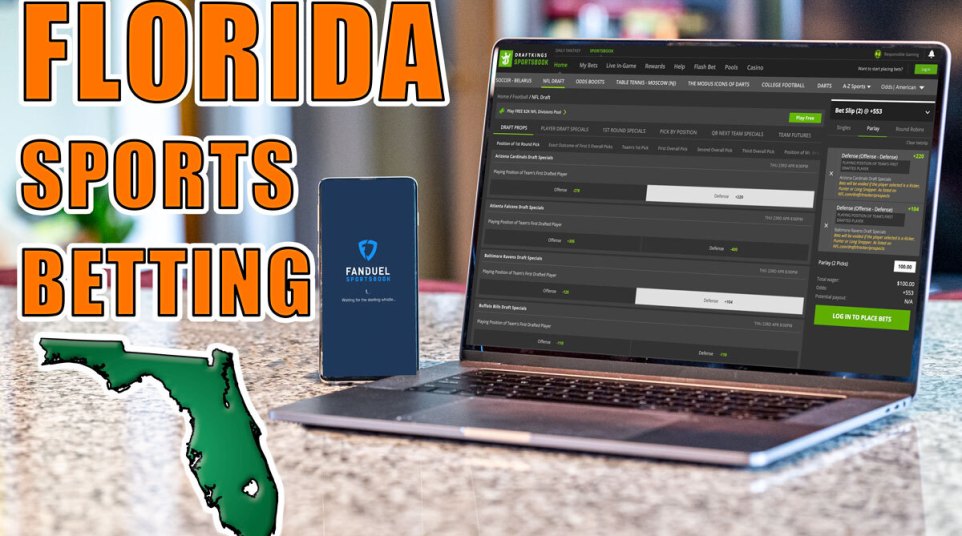
Three big questions for the future of Florida sports betting
Gov. Ron DeSantis and the Seminole Tribe recently reached an agreement on a new 30-year gaming compact that will potentially bring in-person and Florida online sports betting to the state. That’s good! However, nobody is quite sure if the gaming compact will survive the numerous legal battles it could face before becoming a reality. That’s bad!
The gaming compact will be sent to Washington, D.C., for review by the Office of Indian Gaming before potentially being signed in a special legislative session during the week of May 17. Questions remain for several details in the compact in accordance with Indian Gaming Regulatory Act (IGRA).
While the state stands on the precipice of Seminole Tribe controlled legalized sports betting, there are still several questions about the plan that need answers. With nearly $6 billion in potential revenue over 30 years and the future of sports betting at stake, it’s important to understand the uphill battle the gaming compact may face before becoming a reality for Florida.
Will online sports betting be included in Florida’s future?
As it currently stands Florida online sports betting will be a reality in the state. In exchange for the revenue payments and other gambling concessions, Florida agreed to cede control of all aspects of sports betting to the Seminole Tribe. The compact legalizes online and retail sports betting for Florida residents 21 years of age or older. All sports wagering will be completed exclusively through Seminole Tribe controlled sportsbooks, or qualified parimutuel permitholders to offer sports betting at their facilities
The biggest point of contention for online sports betting will be the issue of where bets are placed in the eyes of the law. Online sports betting servers will be housed on tribal property and the authors of the compact believe that any bet placed in the state will be deemed to take place at the location of the servers. This logic has been used in states such as New Jersey and Michigan, where servers are located in casinos.
This is where things get tricky. IGRA requires all sports betting to take place on Tribal land, which would be satisfied by the servers being located in the Tribal casinos. However, this strategy has not been approved for Tribal operators. In 2014 the U.S. Court of Appeals for the Ninth Circuit ruled against an online Tribal bingo casino in San Diego that argued the location of its users bets were in the physical location of its gaming servers.
If this issue is taken to court for the gaming compact it could severely limit the online sports betting aspect of Florida’s plan.
Will a 2018 constitutional amendment allow for Florida sports betting?
The state will also likely have to deal with opponents citing the legality of the deal in the eyes of a voter approved 2018 constitutional amendment (Amendment 3) that requires any new casino gambling laws to be approved by voters. Supporters argue that “sports betting” is not mentioned in the constitutional amendment and was not a common game offered in the 2018 amendment, so it should not be included moving forward.
This amendment ensures that Florida voters shall have the exclusive right to decide whether to authorize casino gambling by requiring that in order for casino gambling to be authorized under Florida law, it must be approved by Florida voters pursuant to Article XI, Section 3 of the Florida Constitution.
If a vote was necessary it likely wouldn’t take place until 2022, which would mean sports betting wouldn’t be legalized until 2023 at the earliest if voters upheld the gaming compact.
When could sports betting be available?
If the gaming compact is signed during the week of May 17 then in-person gambling could theoretically be available sometime in the fall during the upcoming NFL season. However, if its blocked by the constitutional amendment and gets tied up in court, it could be years before sports betting is available in any form.
Online sports betting is an unknown. If the online component is approved and faces no legal issues, online bets could theoretically be available by the Super Bowl. New York recently approved its online sports betting program and state representatives have set Super Bowl LVI, Feb. 13, 2022, as the benchmark start date.
But if the ruling is held up in court? It could be years before online sports betting is available, or it could be taken out of the compact entirely.
